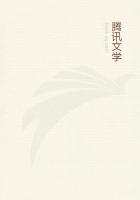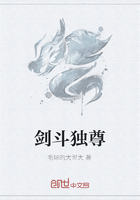The floor was the original surface,tramped hard,worn uneven with much sweeping,and with puddles in rainy weather where the roof leaked.
Mrs Spicer used to stand old tins,dishes,and buckets under as many of the leaks as she could.The saucepans,kettles,and boilers were old kerosene-tins and billies.They used kerosene-tins,too,cut longways in halves,for setting the milk in.The plates and cups were of tin;there were two or three cups without saucers,and a crockery plate or two --also two mugs,cracked and without handles,one with `For a Good Boy'and the other with `For a Good Girl'on it;but all these were kept on the mantel-shelf for ornament and for company.
They were the only ornaments in the house,save a little wooden clock that hadn't gone for years.Mrs Spicer had a superstition that she had `some things packed away from the children.'
The pictures were cut from old copies of the `Illustrated Sydney News'and pasted on to the bark.I remember this,because I remembered,long ago,the Spencers,who were our neighbours when I was a boy,had the walls of their bedroom covered with illustrations of the American Civil War,cut from illustrated London papers,and I used to `sneak'into `mother's bedroom'with Fred Spencer whenever we got the chance,and gloat over the prints.
I gave him a blade of a pocket-knife once,for taking me in there.
I saw very little of Spicer.He was a big,dark,dark-haired and whiskered man.I had an idea that he wasn't a selector at all,only a `dummy'for the squatter of the Cobborah run.You see,selectors were allowed to take up land on runs,or pastoral leases.
The squatters kept them off as much as possible,by all manner of dodges and paltry persecution.The squatter would get as much freehold as he could afford,`select'as much land as the law allowed one man to take up,and then employ dummies (dummy selectors)to take up bits of land that he fancied about his run,and hold them for him.
Spicer seemed gloomy and unsociable.He was seldom at home.
He was generally supposed to be away shearin',or fencin',or workin'on somebody's station.It turned out that the last six months he was away it was on the evidence of a cask of beef and a hide with the brand cut out,found in his camp on a fencing contract up-country,and which he and his mates couldn't account for satisfactorily,while the squatter could.
Then the family lived mostly on bread and honey,or bread and treacle,or bread and dripping,and tea.Every ounce of butter and every egg was needed for the market,to keep them in flour,tea,and sugar.
Mary found that out,but couldn't help them much --except by `stuffing'the children with bread and meat or bread and jam whenever they came up to our place --for Mrs Spicer was proud with the pride that lies down in the end and turns its face to the wall and dies.
Once,when Mary asked Annie,the eldest girl at home,if she was hungry,she denied it --but she looked it.A ragged mite she had with her explained things.The little fellow said --`Mother told Annie not to say we was hungry if yer asked;but if yer give us anythink to eat,we was to take it an'say thenk yer,Mrs Wilson.'
`I wouldn't 'a'told yer a lie;but I thought Jimmy would split on me,Mrs Wilson,'said Annie.`Thenk yer,Mrs Wilson.'
She was not a big woman.She was gaunt and flat-chested,and her face was `burnt to a brick',as they say out there.
She had brown eyes,nearly red,and a little wild-looking at times,and a sharp face --ground sharp by hardship --the cheeks drawn in.
She had an expression like --well,like a woman who had been very curious and suspicious at one time,and wanted to know everybody's business and hear everything,and had lost all her curiosity,without losing the expression or the quick suspicious movements of the head.
I don't suppose you understand.I can't explain it any other way.
She was not more than forty.
I remember the first morning I saw her.I was going up the creek to look at the selection for the first time,and called at the hut to see if she had a bit of fresh mutton,as I had none and was sick of `corned beef'.
`Yes --of --course,'she said,in a sharp nasty tone,as if to say,`Is there anything more you want while the shop's open?'
I'd met just the same sort of woman years before while I was carrying swag between the shearing-sheds in the awful scrubs out west of the Darling river,so I didn't turn on my heels and walk away.I waited for her to speak again.
`Come --inside,'she said,`and sit down.I see you've got the waggon outside.I s'pose your name's Wilson,ain't it?
You're thinkin'about takin'on Harry Marshfield's selection up the creek,so I heard.Wait till I fry you a chop and boil the billy.'
Her voice sounded,more than anything else,like a voice coming out of a phonograph --I heard one in Sydney the other day --and not like a voice coming out of her.But sometimes when she got outside her everyday life on this selection she spoke in a sort of --in a sort of lost groping-in-the-dark kind of voice.
She didn't talk much this time --just spoke in a mechanical way of the drought,and the hard times,`an'butter 'n'eggs bein'down,an'her husban'an'eldest son bein'away,an'that makin'it so hard for her.'
I don't know how many children she had.I never got a chance to count them,for they were nearly all small,and shy as piccaninnies,and used to run and hide when anybody came.They were mostly nearly as black as piccaninnies too.She must have averaged a baby a-year for years --and God only knows how she got over her confinements!Once,they said,she only had a black gin with her.She had an elder boy and girl,but she seldom spoke of them.The girl,`Liza',was `in service in Sydney.'
I'm afraid I knew what that meant.The elder son was `away'.
He had been a bit of a favourite round there,it seemed.
Some one might ask her,`How's your son Jack,Mrs Spicer?'or,`Heard of Jack lately?and where is he now?'















